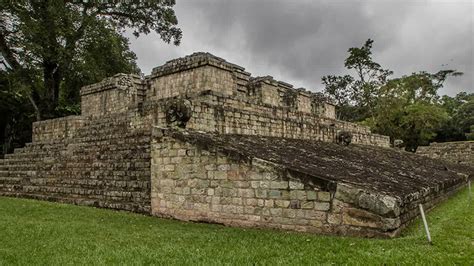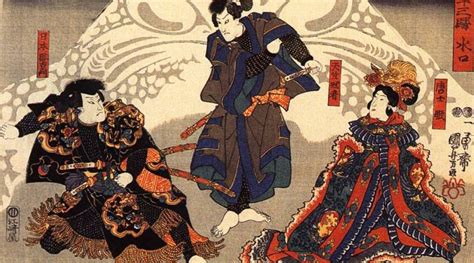Explore the history of Mozambique from early civilization to economic development, including Portuguese rule and the civil war. Learn about its transition to democracy.
Early Civilization and Settlement
Contents
Early Civilization and Settlement
Mozambique has a rich history dating back to the early days of human civilization. The region was first inhabited by indigenous peoples, including the San and the Bantu tribes, who established small agricultural communities along the coast and in the interior. These early settlers developed their own unique cultures and traditions, as well as trading networks with other African societies.
As the centuries passed, Mozambique became a major center of trade and commerce, attracting Arab and Persian merchants seeking gold, ivory, and other valuable commodities. The influence of these foreign traders had a significant impact on the local culture, language, and religion, leading to the development of a diverse and cosmopolitan society.
The arrival of European explorers and colonists in the 15th century further transformed Mozambique’s history. Portuguese navigators, such as Vasco da Gama, established trading posts and forts along the coast, laying the groundwork for the eventual colonization of the region. This marked the beginning of a new chapter in Mozambique’s history, as the country became part of the far-reaching Portuguese Empire.
Overall, the early civilization and settlement of Mozambique played a crucial role in shaping the country’s identity and cultural heritage. The legacy of the indigenous peoples, the influence of foreign traders, and the impact of European colonization continue to define Mozambique’s history to this day.
Colonial Era and Portuguese Rule
The Colonial Era and Portuguese Rule of Mozambique began in the late 15th century when Portuguese explorers first arrived on the southeastern coast of Africa. Over the next few centuries, the Portuguese established control over the region, using it as a strategic trading post and slave market. The colonial era was characterized by the exploitation of natural resources, forced labor, and the establishment of a strict racial hierarchy.
During this time, the Portuguese implemented policies that favored the white minority and marginalized the indigenous African population. They also imposed their language, religion, and cultural practices on the local population, leading to widespread resistance and rebellion. The Portuguese rule was marked by harsh repression of dissent and the establishment of a coercive labor system that deprived the local population of their rights and freedoms.
Despite the repressive nature of the colonial regime, resistance movements and nationalist sentiment began to emerge in the early 20th century. The struggle for independence gained momentum in the 1960s, leading to a protracted armed conflict between the Portuguese colonial authorities and various nationalist groups seeking self-determination.
The colonial era and Portuguese rule left a lasting impact on Mozambique, shaping its social, political, and economic landscape. The legacy of colonialism continues to be felt in the country’s post-independence period, as Mozambique grapples with the challenges of nation-building, reconciliation, and development.
Independence and Post-Colonial Period
History of Mozambique
After centuries of Portuguese colonial rule, Mozambique finally gained independence on June 25, 1975. The Mozambican Liberation Front (FRELIMO), led by Samora Machel, declared independence following a decade of armed struggle against the colonial power. This marked the beginning of a new era for the country, as it embarked on a journey to establish itself as a sovereign nation.
However, the post-colonial period was not without its challenges. The Cold War rivalry and regional power struggles led to the emergence of Renamo, a rebel group supported by the apartheid regime in South Africa. This created a prolonged and devastating civil war that lasted for over 15 years, resulting in widespread destruction and loss of life across the country.
Despite the turmoil, Mozambique eventually managed to transition to a multi-party democracy in the early 1990s. The signing of the Rome General Peace Accords in 1992 marked a turning point in the country’s history, leading to the disarmament and integration of former combatants and the resettlement of displaced populations.
In the years that followed, Mozambique focused on economic development and rebuilding the nation. The government implemented various policies to attract foreign investment and promote economic growth, leading to significant improvements in infrastructure, healthcare, and education. Mozambique also became a member of the Southern African Development Community (SADC), further enhancing its regional and international standing.
The journey from independence to the post-colonial period has been a tumultuous one for Mozambique, but the resilience and determination of its people have paved the way for progress and development in the decades that followed.
Mozambique Civil War
The Mozambique Civil War was a 15-year conflict that took place between 1977 and 1992, following the country’s Independence and Post-Colonial Period. The civil war was fought between the ruling Marxist-Leninist party, FRELIMO, and the anti-communist rebel group, RENAMO. It was a devastating period in the history of Mozambique, characterized by widespread violence, human rights abuses, and economic instability.
The root causes of the civil war can be traced back to the country’s struggle for independence from Colonial Era and Portuguese Rule. After gaining independence in 1975, Mozambique faced significant challenges in maintaining political stability and forging a unified national identity. These challenges ultimately led to the outbreak of the civil war, as FRELIMO and RENAMO sought to assert control over the country’s future.
During the civil war, both sides engaged in brutal tactics, including the use of child soldiers, forced labor, and the destruction of infrastructure. The conflict also had a devastating impact on the civilian population, leading to widespread famine, displacement, and human suffering. The international community played a significant role in attempting to mediate the conflict and provide humanitarian assistance to those affected by the war.
Ultimately, the civil war came to an end with the signing of the Rome General Peace Accords in 1992. This marked a turning point in Mozambique’s history, as the country began the process of rebuilding and reconciliation in the aftermath of the conflict. Today, Mozambique has made significant strides in achieving peace and stability, although the legacy of the civil war continues to impact the country’s social and political landscape.
Transition to Democracy and Economic Development
After years of civil war and political instability, Mozambique made significant strides in its transition to democracy and economic development in the 1990s. The signing of the Rome General Peace Accords in 1992 brought an end to the bloody Mozambique Civil War, paving the way for the country to embark on a path towards peace and stability. This marked a crucial turning point in Mozambique’s history, as the nation began to rebuild its infrastructure and institutions, laying the foundation for a more democratic and prosperous future.
The transition to democracy in Mozambique was marked by the country’s first multi-party elections in 1994, which saw the overwhelming victory of the ruling party, FRELIMO, led by President Joaquim Chissano. These elections were widely regarded as free and fair, signaling a positive step towards the consolidation of democratic governance in the country. Furthermore, the government embarked on a series of political and economic reforms aimed at promoting democratic governance, fostering transparency and accountability, and attracting foreign investment to stimulate economic growth.
During this period, Mozambique experienced a gradual transition towards a market-oriented economy, with the government implementing policies to liberalize trade, privatize state-owned enterprises, and attract foreign investment. The country also benefited from debt relief and foreign aid, which helped to alleviate the burden of external debt and provide resources for development projects. As a result, Mozambique witnessed steady economic growth and an increase in foreign direct investment, particularly in sectors such as agriculture, mining, and tourism.
Despite these advancements, Mozambique still faced numerous challenges in its journey towards democracy and economic development, including widespread poverty, inadequate infrastructure, and vulnerability to natural disasters. Nevertheless, the country made remarkable progress in improving the living standards of its citizens, expanding access to education and healthcare, and promoting inclusive economic growth that benefits all segments of society.
In conclusion, Mozambique’s transition to democracy and economic development represents a significant chapter in the nation’s history, marking a departure from conflict and instability towards peace, stability, and prosperity. While there are still hurdles to overcome, the strides made in the aftermath of the civil war have laid a strong foundation for the country’s continued progress and resilience in the face of adversity.














